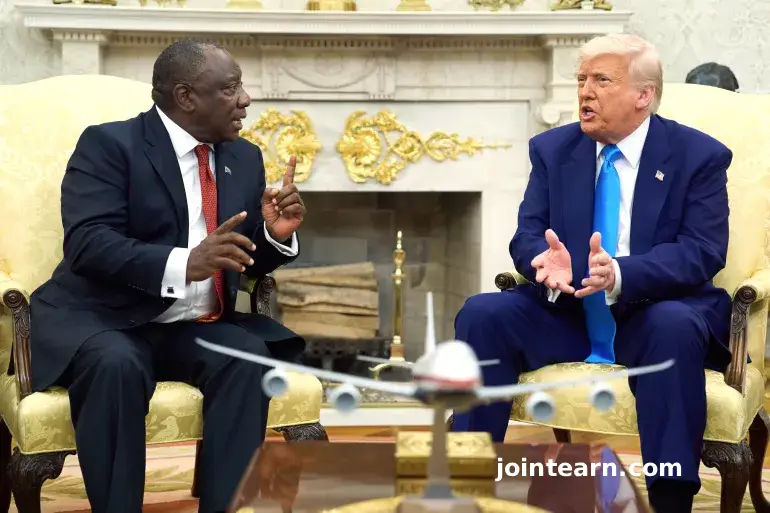
South African President Cyril Ramaphosa has described US President Donald Trump’s decision to boycott the G20 summit in Johannesburg as “their loss,” highlighting tensions between the two countries over unfounded claims of white minority persecution in South Africa and the country’s push for Israeli accountability in Gaza at the International Court of Justice (ICJ).
Ramaphosa Criticizes US Boycott
Speaking on Wednesday, Ramaphosa stated:
“The United States needs to think again whether boycott politics actually works because in my experience it doesn’t work.”
Trump announced that no US officials would attend the G20 summit on November 22–23, citing South Africa’s alleged treatment of white farmers, which he falsely labelled a “genocide.” Trump called the summit in South Africa a “total disgrace” on his Truth Social platform.
Since returning to the White House in January, Trump has repeatedly claimed that white South Africans face violent persecution and land expropriation due to their race—a claim strongly rejected by South Africa’s government and Afrikaner leaders.
South Africa’s ICJ Case Against Israel
Tensions have been further fueled by South Africa’s ICJ case against Israel, which alleges genocide in Gaza. Ramaphosa emphasized that the Gaza ceasefire, which Israel has repeatedly violated, will not affect South Africa’s legal proceedings.
South Africa submitted 500 pages of evidence to the ICJ in October 2024, with Israel’s counterarguments due by January 12, 2026. Oral hearings are anticipated in 2027, with a final judgment expected in late 2027 or early 2028.
The ICJ has issued three provisional measures, ordering Israel to halt genocidal acts and allow humanitarian aid into Gaza, though compliance has been limited.
Ramaphosa Defends G20 Summit
Ramaphosa told reporters outside Parliament:
“It is unfortunate that the United States decided not to attend the G20. The G20 will go on. All other heads of state will be here. In the end, we will take fundamental decisions and their absence is their loss.”
He added that the US is “giving up the very important role they should be playing as the biggest economy in the world.”
Historical Context of US-South Africa Relations
Trump previously confronted Ramaphosa at the White House in May 2025 over claims of widespread attacks on white South Africans. Ramaphosa lobbied for Trump to attend the first-ever G20 summit held in Africa.
Trump’s claims echo conservative US media narratives dating back to 2018 and have been supported by figures like Elon Musk, who accused the South African government of racial bias due to affirmative action policies aimed at advancing opportunities for the Black majority. South Africa maintains that these claims are based on misinformation and misunderstanding.
G20 Summit Overview
The G20, established in 1999, brings together leaders from 19 of the world’s largest economies, plus the EU and African Union, to address global economic and development issues. The US is set to take over the rotating G20 presidency from South Africa at the end of 2025.
South Africa’s strong stance and continued preparations for the summit highlight the country’s determination to host a successful global meeting despite the US boycott, signaling resilience in international diplomacy.


Leave a Reply